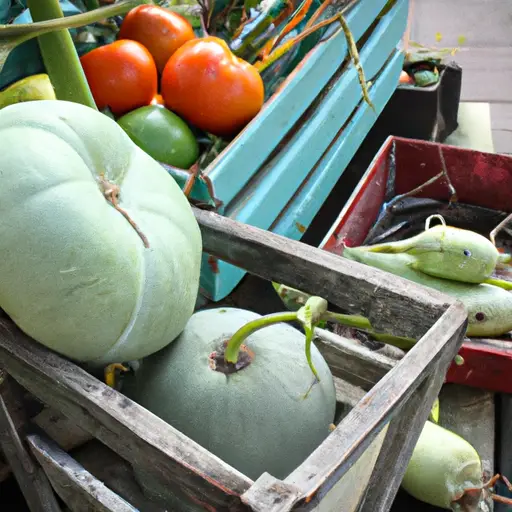In recent years, there has been a growing trend towards self-sustainability and a desire to eat healthier. One way to achieve both goals is through container gardening – a practice that allows individuals to enjoy the freshest fruits and vegetables right from their own homes. Container gardening is a versatile and convenient solution, perfect for those with limited outdoor space or no access to a traditional garden.
One of the major advantages of container gardening is its flexibility. Whether you live in an apartment, have a small backyard, or even just a balcony, you can easily create your own mini-garden using containers. All you need is some sunlight, water, good-quality soil, and of course, the plants themselves.
Growing fruits and vegetables in containers offers numerous benefits. Firstly, it allows you to have complete control over the growth conditions of your plants. You can choose the best soil mix for each specific crop, ensuring they receive the nutrients they need to thrive. Additionally, container gardening enables you to monitor and adjust water levels more easily than in traditional gardens. This control helps prevent over or under-watering and guarantees optimal growth.
Another advantage of container gardening is its portability. If you live in an area with harsh weather conditions or have limited outdoor space, you can simply move your containers indoors during unfavorable seasons or adverse weather events. This flexibility ensures that your plants will always be protected and can continue to grow year-round.
Container gardening also provides an opportunity to experiment with different varieties of fruits and vegetables that are not commonly available in local markets. By selecting rare or heirloom varieties, gardeners can enjoy unique flavors and textures that are often lost in commercial cultivation.
In addition to being convenient and flexible, container gardening is also an eco-friendly choice. It reduces carbon emissions by limiting the need for transporting produce from far-off locations. Furthermore, it eliminates the use of harmful pesticides often found on commercially grown crops.
When starting your own container garden, remember to choose appropriate containers for each plant. Some crops, such as tomatoes or peppers, require deeper pots to accommodate their extensive root systems, while others, like lettuce or herbs, can thrive in shallower containers. Ensure that each container has adequate drainage to prevent waterlogged soil, which can lead to root rot.
Choose the right location for your garden by considering the sunlight requirements of each plant. Most fruits and vegetables need at least six hours of direct sunlight per day. If using an indoor space, make sure it receives sufficient natural light or invest in grow lights to provide the necessary rays.
Regular watering is crucial for container plants since they tend to dry out faster than those grown in traditional gardens. Check the moisture levels daily and water as needed. However, be cautious not to overwater, as this can cause root rot and other problems.
Once your plants start growing and producing fruits or vegetables, the joy of picking them fresh and enjoying their flavors will be immeasurable. From juicy strawberries and flavorful herbs to crisp lettuce and vibrant bell peppers – your container garden will provide you with an endless supply of delicious produce.
In conclusion, container gardening offers a fantastic opportunity for individuals to enjoy fresh fruits and vegetables from the comfort of their own homes. With its flexibility, convenience, and potential for experimentation with different varieties, this practice allows anyone, regardless of their living situation or available space, to engage in self-sustainable gardening. So why not start your own container garden today? You’ll not only reap the benefits of homegrown produce but also contribute towards a healthier lifestyle and a greener planet.













